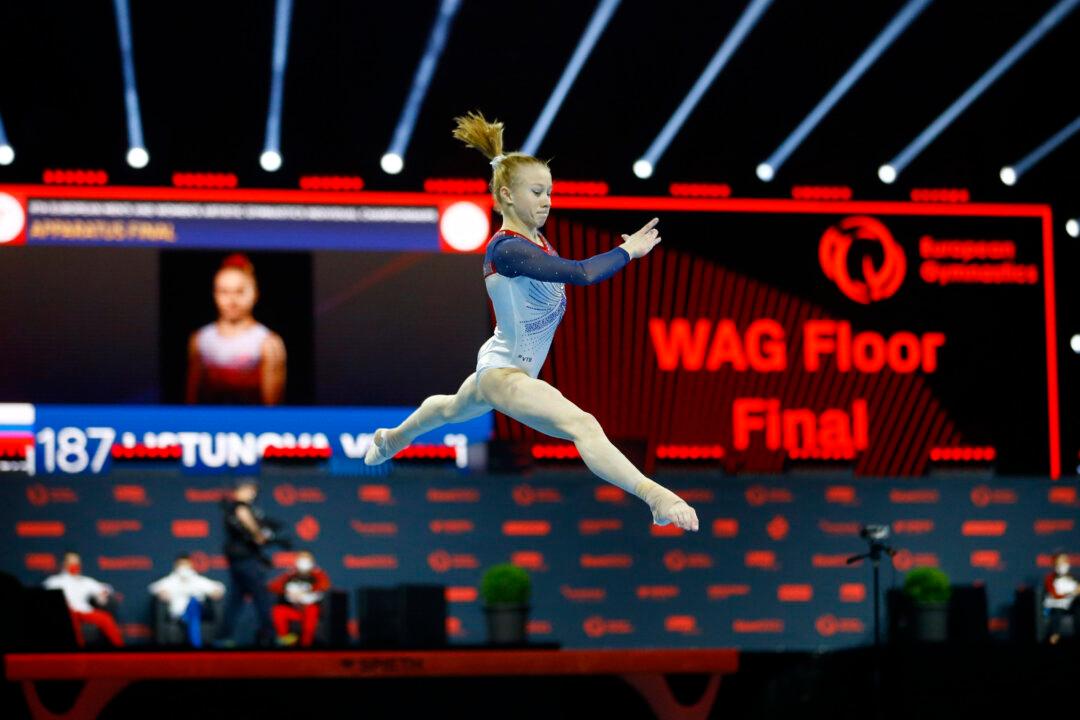Sixteen-year-old Viktoria Listunova won the women’s artistic gymnastics all-around title at both the European and Russian Championships earlier this year.
However, despite placing sixth overall in the qualifying round on Sunday, the Russian Olympic Committee athlete will not get the chance to try for another all-around crown at the 2020 Tokyo Olympics.





